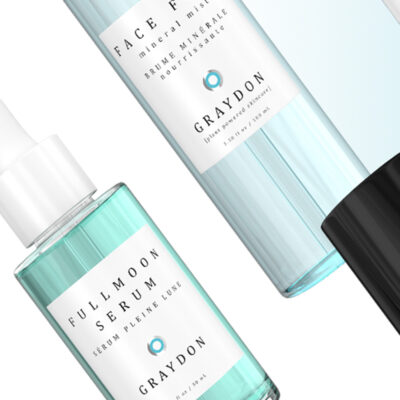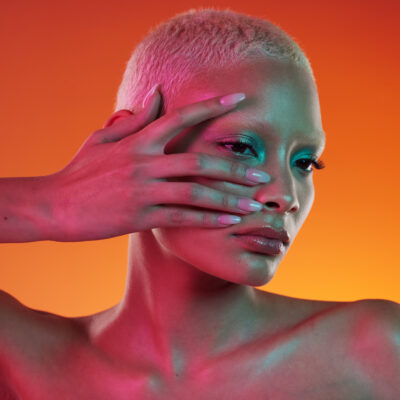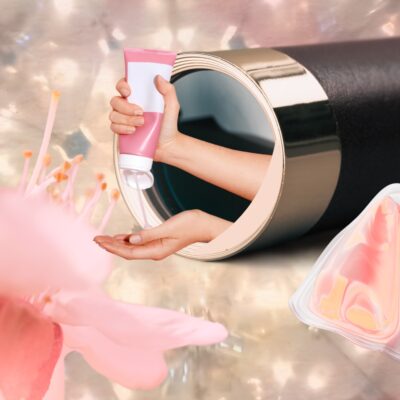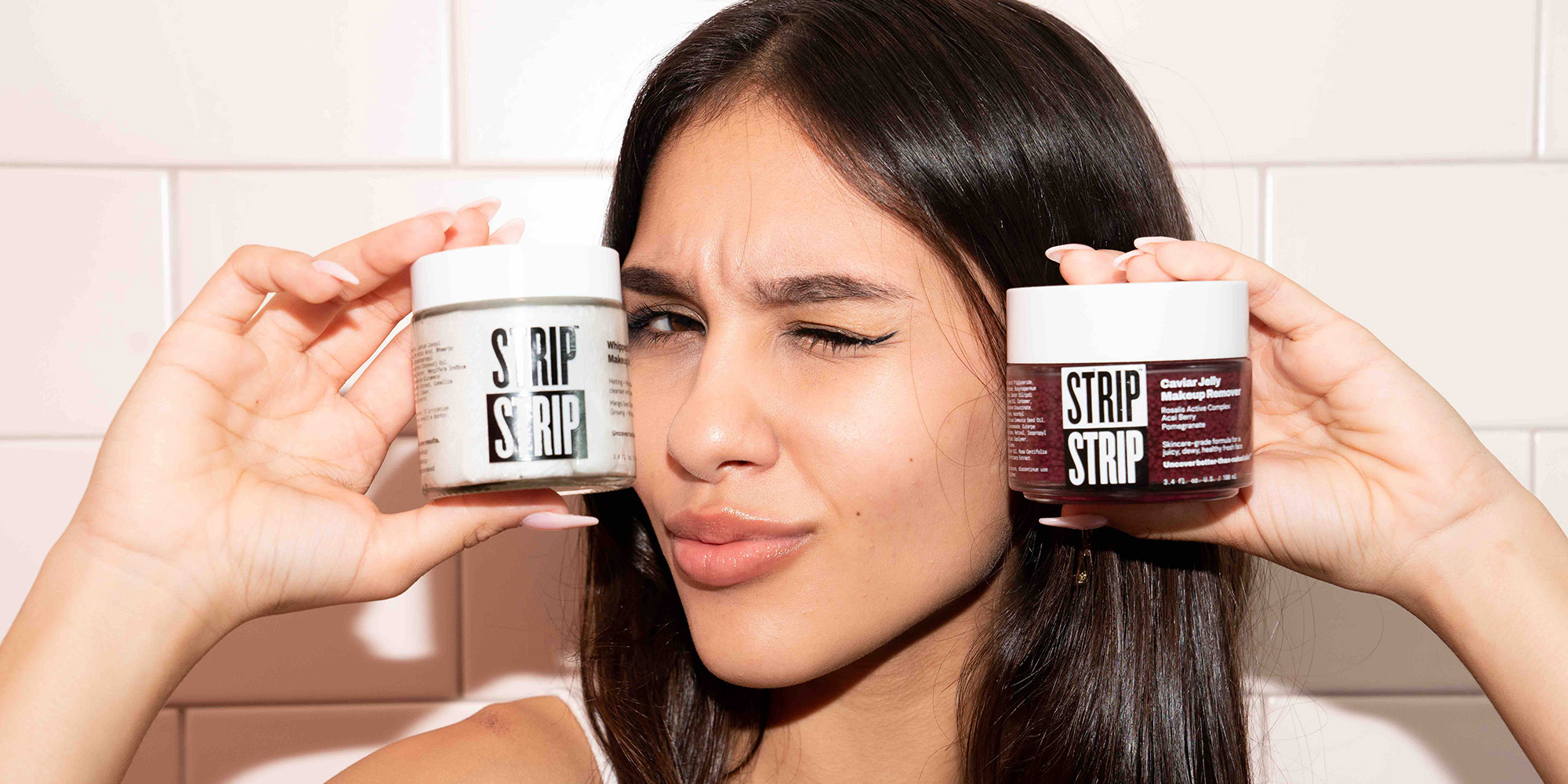
Mintel Identifies 3 Big Trends Propelling The Future Of Beauty
Americans aren’t sanguine about the United States economy or the fate of the country. As reflected in market intelligence firm Mintel’s forecast of trends influencing the business of beauty over the next five years, their pessimism has them seeking proof before they plunk down on products and staying away from flashy exhibitions of their beauty preferences.
Below, Clare Hennigan, senior global beauty and personal care analyst at Mintel, provides insights on the leading trends, strategies that brands should pursue in the changing market and products that speak to the state of the consumer today and tomorrow.
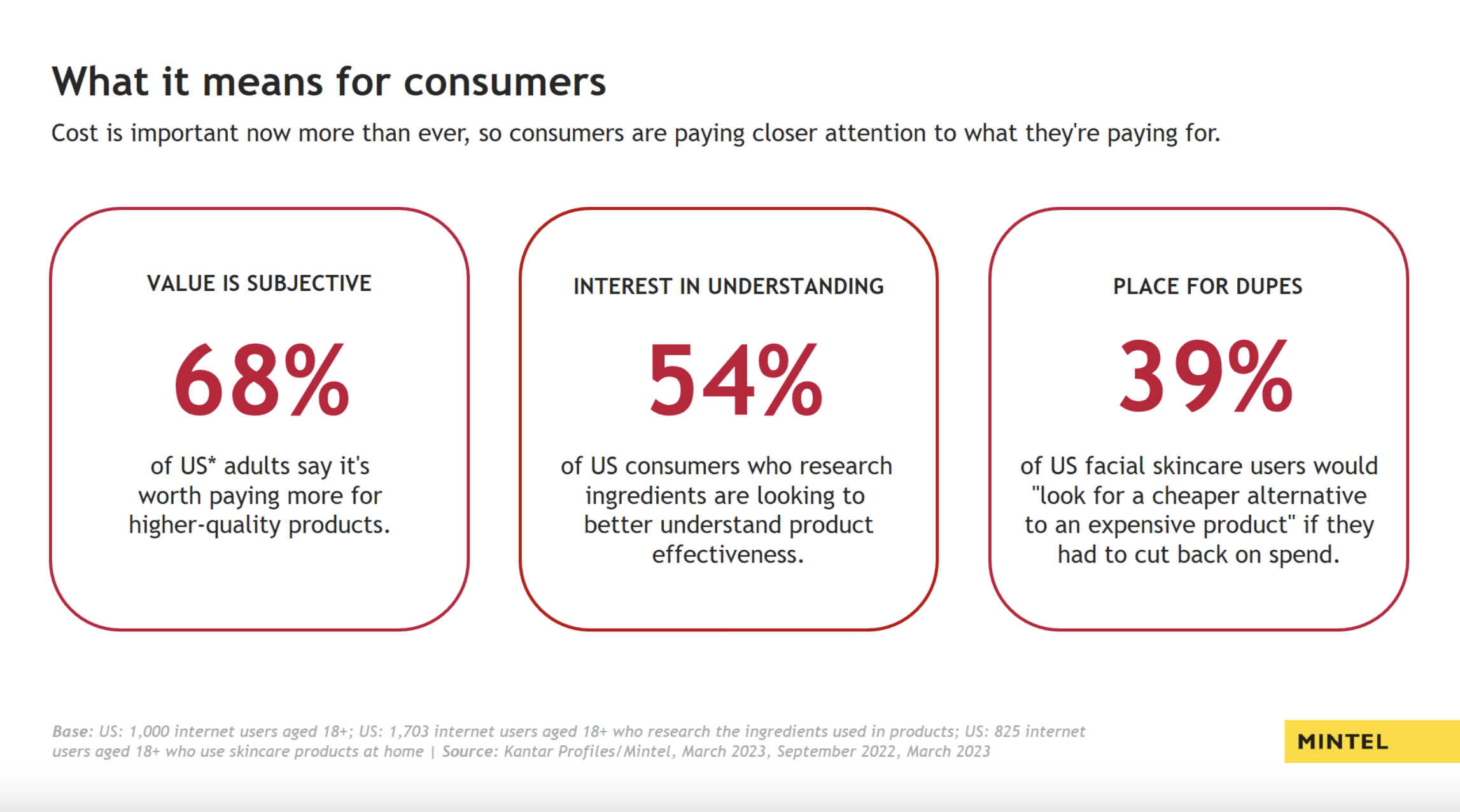
Sophisticated Simplicity
Epitomized by the wardrobe choices on the HBO show “Succession,” “quiet luxury” has been a popular fashion buzzword this year. Hennigan believes the understated style, which she describes as a means to “subtly denote your class or your social status through high-quality materials,” will have ramifications for beauty by stressing the quality of packaging and formulation materials. Hennigan points out that 68% of American adults say high-quality products are worth paying a premium for.
She says, “We see that consumers continue, even during times of inflationary pressure of cost of living crisis, to turn to the beauty and personal care space as a way to seek out those small luxuries.”
Hennigan is witnessing a desire for streamlined beauty routines filled with multipurpose products. She identifies the brand Magic Molecule’s all-over remedy for cuts, spots, burns and dryness called The Solution as an example of a product suited to the streamlined approach. It includes hypochlorous acid, an ingredient that’s the centerpiece of the brand Tower 28’s bestselling SOS Daily Rescue Facial Spray. Hennigan thinks the ingredient is on the upswing because it has an array of antibacterial and anti-inflammatory properties.
The beauty spotlight is burning bright on efficacy. Hennigan predicts there will be a stronger emphasis on the molecular weight of compounds. She highlights the brands Klavuu and ROMO already emphasize molecular weight. Hennigan says, “As we see more studies that discuss how a compound must be under 500 dalton to really have that ultimate skin absorption, we expect more brands will seek to distinguish themselves by really calling attention to that.”
Texture can assist brands in foregrounding efficacy. Hennigan brings up the brand Strip Makeup’s makeup remover containing red micro bubbles that burst on faces upon application. “They’re really denoting efficacy and performance in a fun way there,” she says, mentioning efficacy can be reinforced via devices and expert partnerships as well.
Outlining a five-year roadmap for the movement toward sophisticated simplicity, Hennigan prognosticates innovation expansion and eco-conscious practices will play prominent roles. “We do expect companies to invest in advanced formulations, cutting-edge ingredients and technologies for targeted solutions,” she says. “And when we’ve seen this demand for sustainability and efficacy really come together via green chemistry and biotechnology, we know that these innovations really provide a path for brands to not only be more sustainable, but also really help tell that story of quality and efficacy and performance just by simply having that better control of the supply chain.”

Neurocosmetics
The efficacy conversation is extending to beauty’s relationship with wellness and the mind-body connection. “Consumers already understand the role that their appearance has on their mood and vice versa,” says Hennigan. “However, this next phase is really going to see a pressure on brands to not only provide some of these more wellness-adjacent products, but also validate these claims,”
Adaptogenic ingredients are part of the neurocosmetics trend linking efficacy and wellness. The brand Image Skincare’s Biome Plus series features ashwagandha in its formulations. There’s also a growing interest in products designed to block the production of cortisol, a hormone associated with stress. The brand Peace & Pure’s Timeless Elixir Facial Serum uses a PhytoNeuron Complex that claims to block cortisol production in the skin and support skin rejuvenation and mental relaxation.
Hennigan anticipates brands to increasingly consider psychodermatology, a field exploring the interaction between the mind and the skin. She mentions skincare brand Sereko and haircare brand Just Human as delving into psychodermatology. Hannigan recommends brands investigate the science behind cosmetic ingredients and partner with dietitians and mental health experts to devise meaningful products.
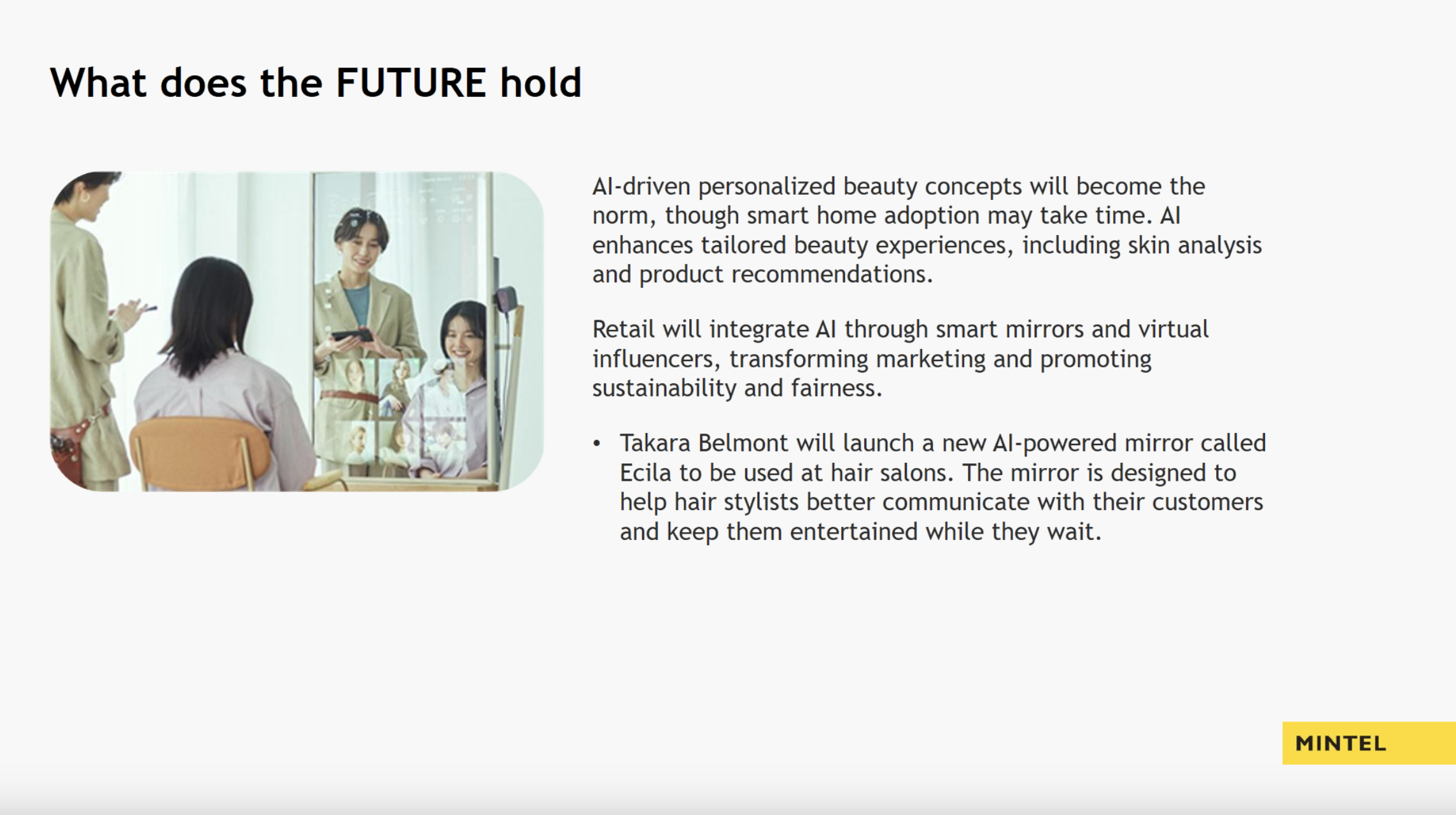
Beaut-AI
Artificial intelligence has the potential to transform the beauty industry by enhancing personalization, efficiency and effectiveness. The brand KIKI World created its most recent release, the peel-off nail polish pen Pretty Nail Graffiti, by crowdsourcing ideas from its community, giving out digital tokens to participants in the crowdsourcing process and producing the product via AI technology. Hennigan says, “Helping consumers feel involved in the product development process is really a key way in helping consumers feel connected to the brand.”
Fragrance and body care brand LAFCO’s latest room sprays were developed with an AI algorithm that examined scent compounds to determine the right ones to incorporate. Hennigan. says, “AI really is able to speed up that development process quite significantly.”
AI-facilitated virtual try-on technology and smart mirrors could be improved, per Hennigan. She’s interested in the company Takara Belmont upcoming smart mirror product, Ecila, targeted at hair salons. For hairstylists and their clients, she says it can “ensure that you’re on the same page and also validate what this haircut or hair color will look like on me before I pay for the service before I make this commitment.” She continues, “[Smart mirrors] are really providing a way for consumers to try products without necessarily needing to make that leap, but also offer that fun engagement that can really help retailers.
While 40% of American adults who’ve heard of AI think it will mostly be beneficial for society, there are a plethora of concerns about AI’s impact on the world. Brands need to take into account privacy concerns. Hennigan suggests brands be honest about how consumer data is handled and managed “to help reaffirm consumers that it can’t be tied back to them or how exactly it’s being used.”
Transparency around whether images in marketing campaigns are generated with AI is critical for building trust, too. Hennigan says it will be important to “be empathetic when it comes to understanding consumer’s concerns and staying on top of some of those regulatory changes because this space is still so new.”

